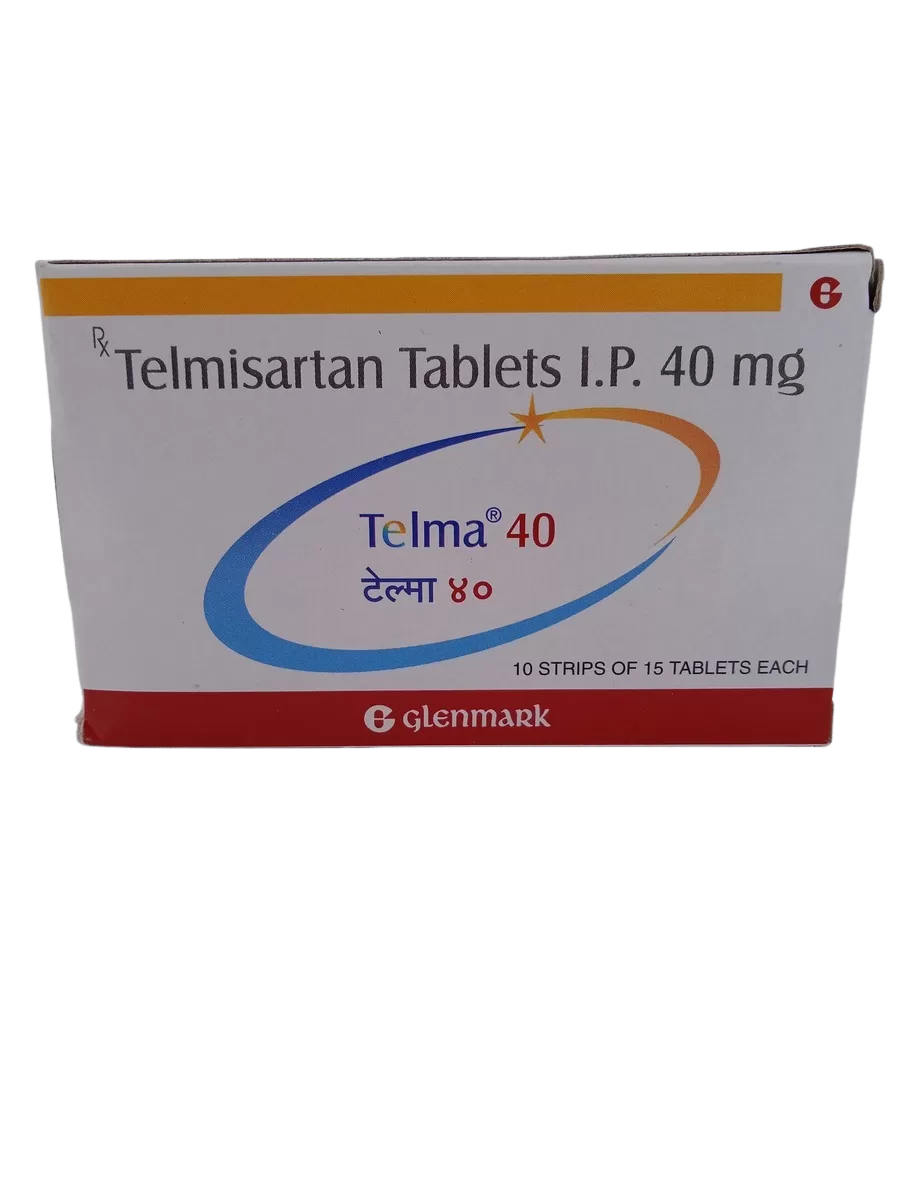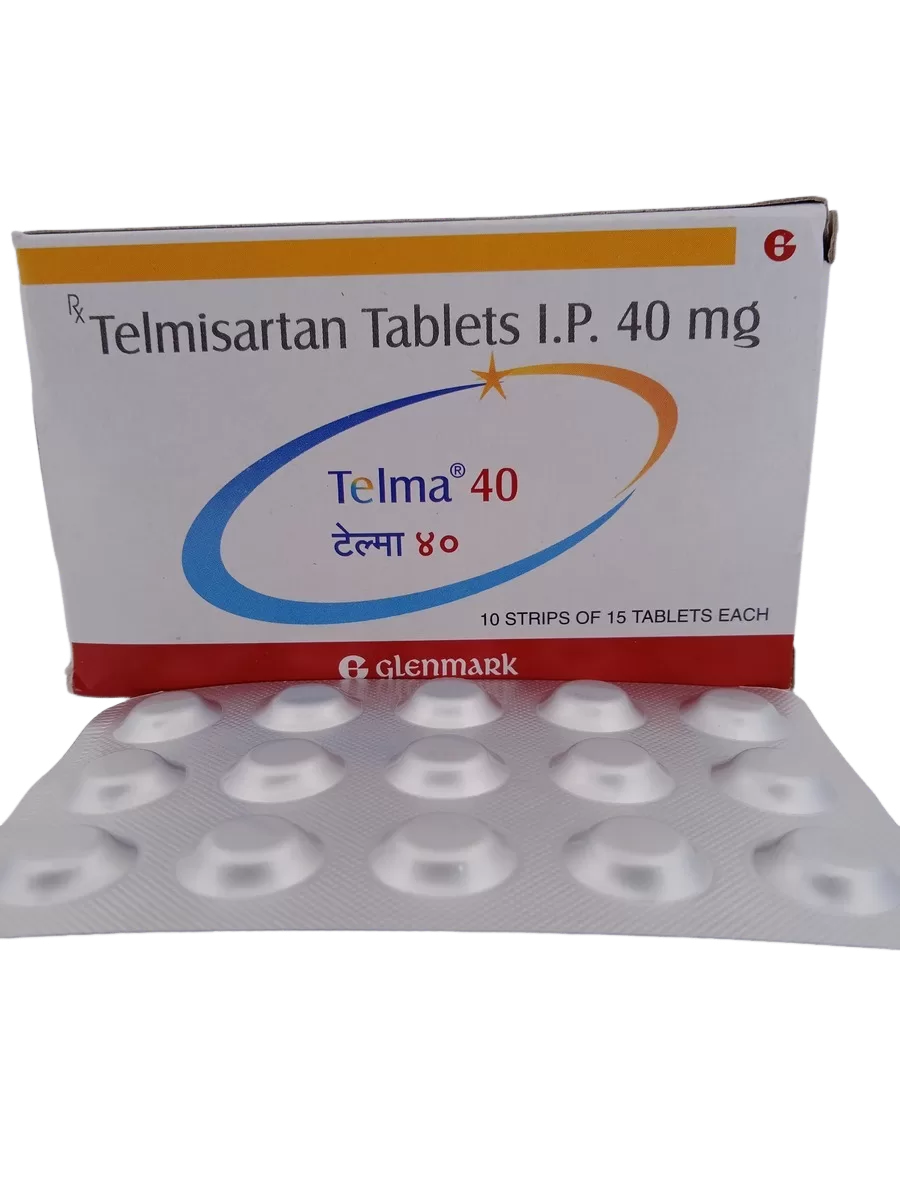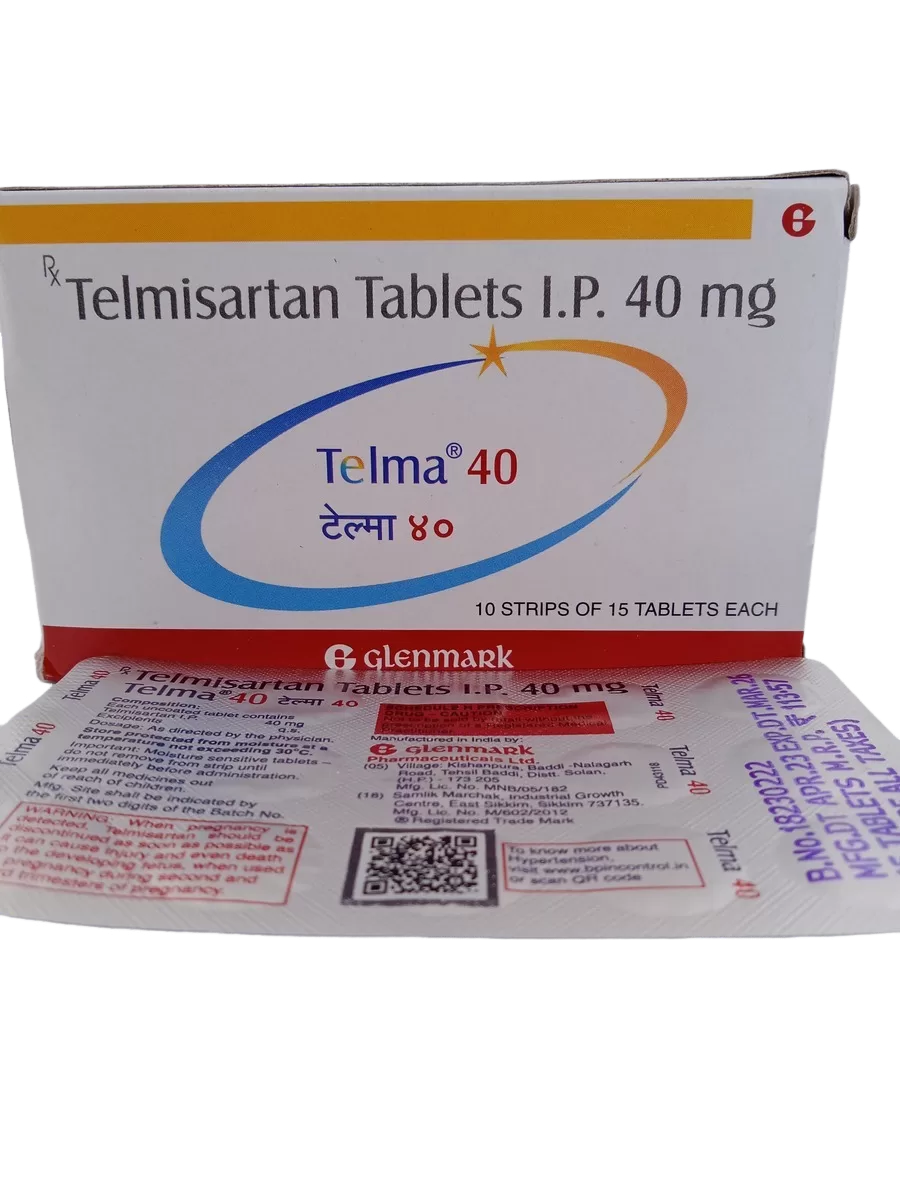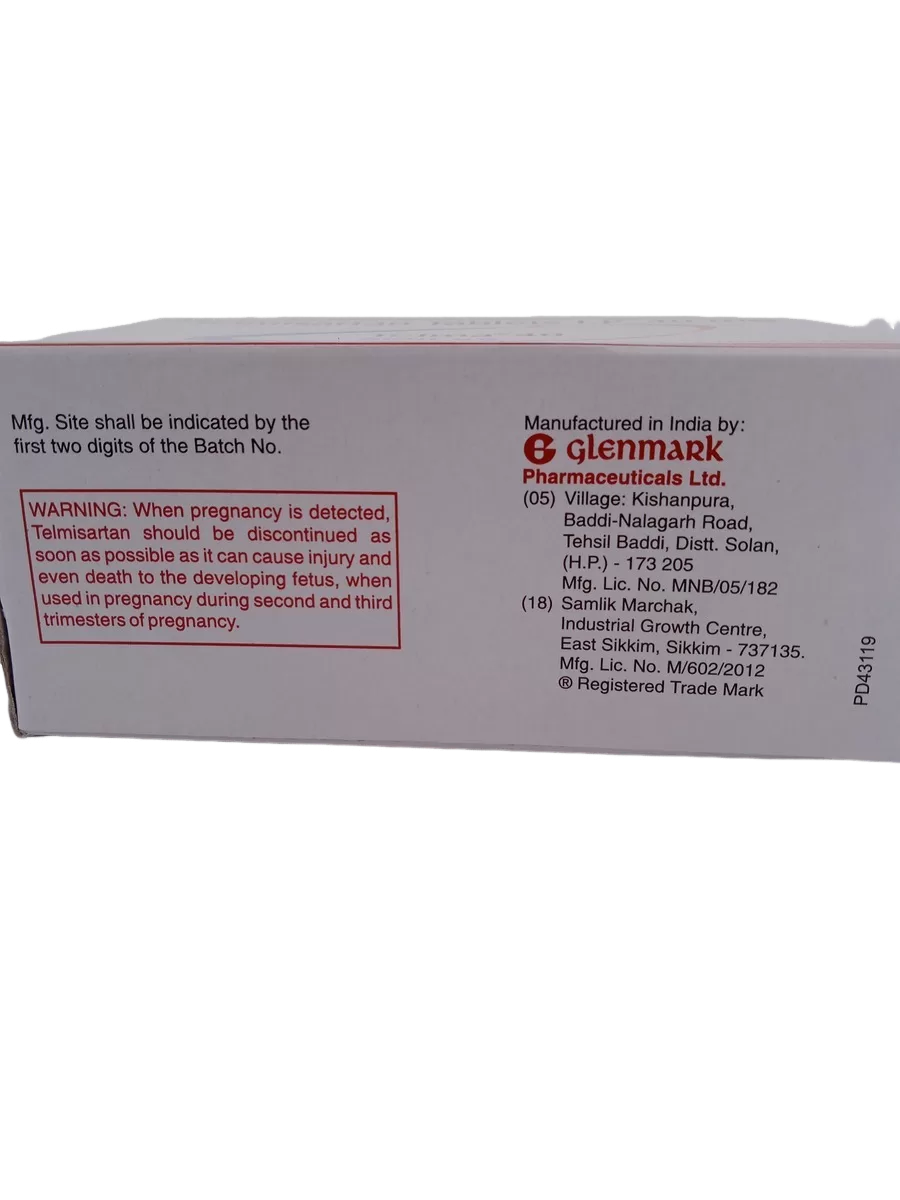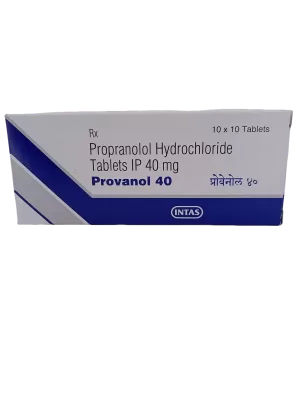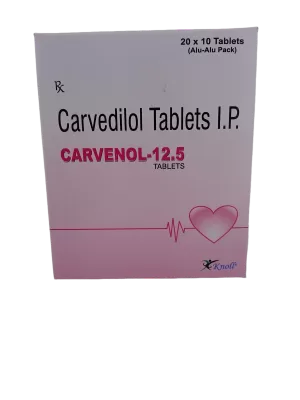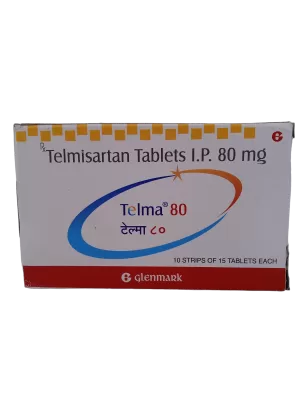Subtotal: $1.40
TELMA 40 MG – 15 TABLET
$4.00
Telma 40 mg tablet is a highly effective medication designed to manage hypertension (high blood pressure) and promote cardiovascular health. With Telmisartan as its active ingredient, this tablet works by relaxing the blood vessels, which helps in lowering blood pressure and significantly reducing the risk of cardiovascular complications such as heart attack and stroke.
Telma 40 mg works by targeting key pathways in the body, ensuring that the blood vessels remain relaxed, thereby improving overall cardiovascular function. This mechanism of action contributes to better heart health and overall well-being.
TELMA 40 MG – 15 TABLET: Comprehensive Guide and Benefits
Introduction to TELMA 40 MG – 15 TABLET
Telma 40 mg tablet is a highly effective medication designed to manage hypertension (high blood pressure) and promote cardiovascular health. With Telmisartan as its active ingredient, this tablet works by relaxing the blood vessels, which helps in lowering blood pressure and significantly reducing the risk of cardiovascular complications such as heart attack and stroke.
Telma 40 mg works by targeting key pathways in the body, ensuring that the blood vessels remain relaxed, thereby improving overall cardiovascular function. This mechanism of action contributes to better heart health and overall well-being.. This product is carefully formulated to provide effective results while ensuring safety and ease of use.
Key Benefits of TELMA 40 MG – 15 TABLET
Effective Action – Works efficiently to deliver intended results.
High-Quality Ingredients – Formulated with trusted components for maximum effectiveness.
Safe Usage – Designed for optimal use with minimal side effects.
How TELMA 40 MG – 15 TABLET Works
The active ingredients in TELMA 40 MG – 15 TABLET work by targeting key mechanisms in the body to provide the desired benefits. It is widely recommended for its efficacy and safety.
Usage Instructions for TELMA 40 MG – 15 TABLET
Dosage – Follow the prescribed dosage or as directed by a healthcare professional.
Administration – Best taken at the recommended time to maximize effectiveness.
Precautions – Avoid exceeding the recommended dose and consult a doctor if necessary.
Medicinal Advantages of TELMA 40 MG – 15 TABLET
Reliable Results – Proven to deliver desired outcomes.
Supports Health – Helps improve well-being with consistent use.
Minimal Side Effects – Designed to reduce adverse reactions.
Off-Label Uses of TELMA 40 MG – 15 TABLET
While primarily used for its main purpose, some users have reported additional benefits in related health areas. Consult a healthcare provider for more information.
Expert Advice for Optimal Use
Consultation – Always check with a doctor before use, especially if you have existing health conditions.
Safe Storage – Keep in a cool, dry place away from children.
Avoid Misuse – Use only as directed to prevent complications.
Storage Instructions
Temperature – Store at room temperature, away from heat and moisture.
Safety Precautions – Keep out of reach of children and pets.
Frequently Asked Questions (FAQs)
Q: How soon does TELMA 40 MG – 15 TABLET take effect?
A: The effects vary but are generally noticeable within a reasonable timeframe.
Q: Can I use TELMA 40 MG – 15 TABLET daily?
A: Usage frequency should be based on professional medical advice.
Q: Is TELMA 40 MG – 15 TABLET safe for pregnant or breastfeeding women?
A: Consultation with a healthcare provider is recommended before use.
Q: Are there any side effects?
A: Most users experience minimal or no side effects when taken as directed.
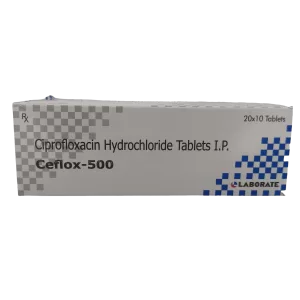 CEFLOX 500 MG - 10 TABLETS
CEFLOX 500 MG - 10 TABLETS 
